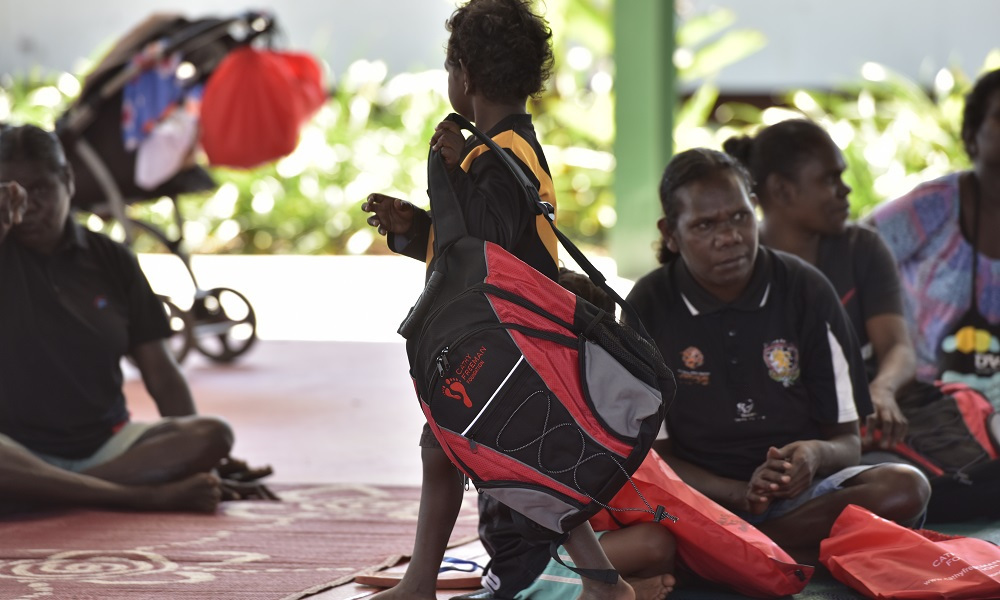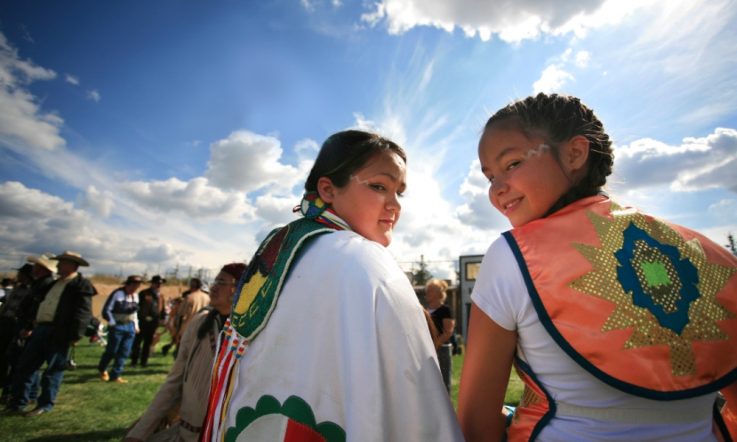For school communities, achieving a high attendance rate for all students can be a difficult feat. For one school in the Northern Territory, partnering with the Cathy Freeman Foundation and getting involved in their Starting Block Program has helped encourage students to come to school more often.
The Foundation partners with seven schools for the Starting Block Program. ‘[It] drives awareness and understanding about school and educational achievement,' Cathy Freeman tells Teacher.
Goals, role models and resilience
‘Our entire program delivery inspires students to feel confident, recognise their potential and set goals for their futures. Our community staff work one-on-one with students in the classroom delivering workshops that cover off on themes such as dreams and goals, role models, confidence and resilience, and celebrating culture.'
The Starting Block Program is rewards and incentive based, giving students the opportunity to see their attendance progress on a classroom chart and receive an award at the Starting Block Awards ceremony if they achieve 90 per cent attendance for the school term.
Peter Heyhoe is the Cathy Freeman Foundation Liaison at his school, Murrupurtiyanuwu Catholic Primary School (MCPS) in the Tiwi Islands – about 80 kilometres north of Darwin – and is also a Grade 5 and 6 classroom teacher. MCPS has been involved in the Starting Block Program since 2014, at which time their rate of student attendance was hovering at about 70 per cent.
‘The rate of attendance goes up and down a lot due to numerous factors – violence in the community, paydays, level of gambling going on in the community at the time …' Heyhoe tells Teacher. ‘Overall it's up at present. The involvement of the Cathy Freeman Foundation certainly helps improve attendance.'
Freeman famously won 400m gold at the Sydney 2000 Olympics, carrying Australian and Aboriginal flags on her lap of honour. Reflecting on her work as Director of the foundation, which she co-founded in 2007, Freeman says: ‘I do whatever it takes, within reason, to succeed. I've realised potential within myself and I want the same experience for other Indigenous kids because their futures depend on it.'
Community engagement
One of the attendance and family engagement program's initiatives is the Back to School March, which is held on the first day of school. This year, MCPS celebrated 86 per cent attendance for the entire school on the first day of classes, while 100 per cent attendance was achieved for Preschool, Transition, Year 2 and Year 3.
‘The foundation was certainly responsible for that,' Heyhoe says. ‘The Back to School March really lets the kids know (and parents) that school has started. It's a great way to start as it's fun, so the kids know that it will be a good first day at school.'
Freeman is closely involved in the Starting Block program and says the Back to School March encourages each student to start the term in a positive way. ‘On day one of each term, local Cathy Freeman Foundation staff together with the schools, council, families and other stakeholders, and walk through their community to highlight that “Today is a school day” encouraging kids back to school for the new school term.'
She adds that community engagement is critical to program success and driving better educational outcomes for children.
As well as the Back to School March, the foundation has another attendance initiative within the Starting Block Program named Give Me Five, which challenges students to attend school five days more than they did the previous term. This is to target students with a low school attendance, sometimes of around 20 to 50 per cent. ‘Together with schools, teachers, families and the wider community, we all drive better education outcomes for the kids,' Freeman says. ‘In 2017, 16 students graduated from Year 12 across our four partner communities and that's an increase of 25 per cent from 2016.'
As a school leader, how do you encourage students to be responsible for their own attendance? Have you ever considered adopting a rewards-based system?
Do your students know their own attendance rate? Do you know your class or whole school attendance rate?
In what ways do you communicate with parents and carers to let them know that their child’s consistent attendance is important?



